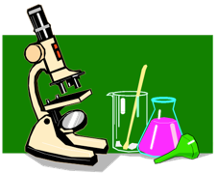Jump To:
Resources
Author Info
Darleane C. Hoffman
Chemist
Lawrence Berkeley National Laboratory
Betty Harris
Chemist
Los Alamos National Laboratory
Email: bharris@lanl.gov
What is a chemist?
Chemists are science career professional doing extraordinary work. They have the ability and the desire to seek and understand accumulated knowledge. Their work affects all areas of our lives. Whether it is the application of an established principle or a new one, whether it is a new product or a new use for an old one, the work of chemists makes the difference between success and failure of many projects. A chemist can be a man or a woman. History has shown that chemistry is a science that was open to women from its beginning. Women chemists have made and continue to make major contributions to the advancement of the field.
Chemists are physical scientists that specialize in the study of matter. They follow the scientific method: develop a hypothesis on what, why, and how matter will react; then they design experiments, observe changes, and characterize products. The results, in the form of laboratory data, are carefully evaluated and conclusions drawn, illustrating graphics are added, and a document is published for use and evaluation by other chemists.
It is impossible for a chemist to know all there is to know in all fields of chemistry. Therefore, most chose to specialize in a given area. Some chemists spend their entire careers analyzing things (analytical chemists) others may synthesize chemicals (synthesis chemists), still others may classify themselves as physical chemists, organic chemists, inorganic chemists, biochemists, or medicinal or pharmaceutical chemists. Fields are defined by a prescribed set of guidelines that may be mixed to produce things like organic-analytical chemists. The liberal arts education required of chemists serves as a bridge when they move from one category to another.
What makes a good chemist?
Preparation and practice are the key elements that make a good chemist. Required college-level courses, technical training, and on-the-job experience can propel the new chemist into her career at a competitive level. Then, a good chemist chooses projects and activities wisely, is disciplined and patient, follows the scientific method, learns from mistakes and experiments that fail, is a good communicator, and focuses on her chosen career directions. The good chemist is a nurturing mentor of other aspiring chemists. She maintains interactions with professional organizations and has the respect and the support of her peers. The latter is an added benefit to the career of a chemist.
What is life as a chemist like?
Being a chemist is exciting and rewarding work. Whether the chemist is a teacher, researcher, technician, sales representative, consultant, museum worker, automobile industry chemist, editor/writer, or administrator, she tends to put in very long hours on the job. Yet she makes time to be involved in family and community activities. Today’s chemist, like those of the past, surrounds herself with books, journals, chemicals, hoods and shields, beakers, test tubes, columns, analytical balances, instruments, and some self-invented devices. Some chemists work on proprietary projects, others work on classified projects.
One glaring difference between chemists of today and those of the past is the sophisticated computers and advanced technology now available that make work easier but thinking and analysis more intense. Another difference is the established rules that must be followed and the added protection and safety required of today’s chemists. This is good because it protects the health of the worker. Some chemicals are hazardous (acids, bases, toxic substances, explosives, flammable, or carcinogens). Therefore, chemists must wear protective clothing such as safety glasses, safety shoes, gloves, and sometimes respirators. While performing an experiment, the chemist usually works inside a hood that has an exhaust system equipped with filters and scrubbers to prevent harmful materials from reaching the atmosphere. Nevertheless, the chemist’s inquisitive nature and continued quest to understand how matter reacts is the same as it has been for hundreds of years.
How do I become a chemist?
Chemists spend many years in colleges and universities preparing for their life’s work. The goal for most chemists is to obtain a Ph.D., but this degree is not necessary to become a technician or to teach or to become a chemical engineer. Deciding on a specialty is important. Many chemists began with elementary or secondary school science projects, then find summer jobs in industry or internships with chemical companies. A mentor or several mentors may help with advice and projects that advance the neophyte into a strong chemistry career.
Chemical engineers often do not obtain advanced degrees, but their median salaries with a B.S. degree were nearly $4,000 per year higher in 1980 than were salaries for chemists with Ph.D.s!
Take as much mathematics and science in junior high and high school as you can. Mathematics is an indispensable tool in chemistry. It also teaches you to think logically and helps you to formulate problems. A thorough knowledge of English and written and oral communication will be invaluable for communicating your ideas and results to others; there is a particular need for those who can communicate with the nonscientist as well as the scientist. Take courses in other sciences as well. You may find that you wish to combine chemistry with physics, biology, geology, or some other discipline and pursue an interdisciplinary course. Nevertheless, make sure that you obtain a firm foundation in the fundamentals of chemistry before specializing as an undergraduate.
What/where are the jobs?
Chemistry can be an exciting and satisfying profession in which job opportunities are plentiful. Typically, chemists working for private industry or the federal government earn more than those in academia or in nonprofit organizations. The highest salaries have historically been paid by the petroleum industry. The data include analytical, organic, pharmaceutical, and polymer chemists and biochemists.



